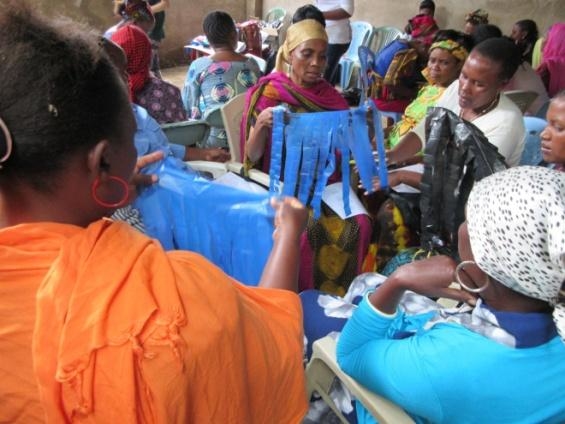Empowering Tanzanian women using environmentally-conscious initiatives
Published
2016-03-14
Waste plastic shopping bags are a plentiful resource that can be found in fields, along roadsides, and in garbage piles around the world. By repurposing this resource, MIT students in Arusha Tanzania are empowering women and improving the environment through a plastic recycling program.
The project aims to improve the lives of people in three ways: First the project aims to reduce the amount of waste plastic bags and increase environmental awareness by emphasizing the potential usefulness of "waste products." Second, the project aims to provide an economic opportunity to women by creating new products out of the plastic bags. And finally, the project provides customers with quality, environmentally-conscious products such as reusable grocery bags.
 Through interactive workshops, women are learning how to create plastic yarn, or plarn, from waste plastic. Each workshop also includes a design challenge which is meant to urge participants to be creative and think of new ways to use the repurposed material. During these challenges the women are divided into teams to design an outfit using just 5 plastic bags, tape, and scissors. The exercise attempts to show the versatility of the bags and the potential of creating new products.
Through interactive workshops, women are learning how to create plastic yarn, or plarn, from waste plastic. Each workshop also includes a design challenge which is meant to urge participants to be creative and think of new ways to use the repurposed material. During these challenges the women are divided into teams to design an outfit using just 5 plastic bags, tape, and scissors. The exercise attempts to show the versatility of the bags and the potential of creating new products.
The Tanzanian women involved in the initiative commonly create economic income by creating artisinal products such as soap or jewelry. The plarn products add a potential additional income source with little to no cost of materials for the artisans. As the plarn makes attractive and useful reuseable shopping bags a disposable product is turned into a more durable alternativel and a new, more environmentally conscious, product is introduced into the marketplace.